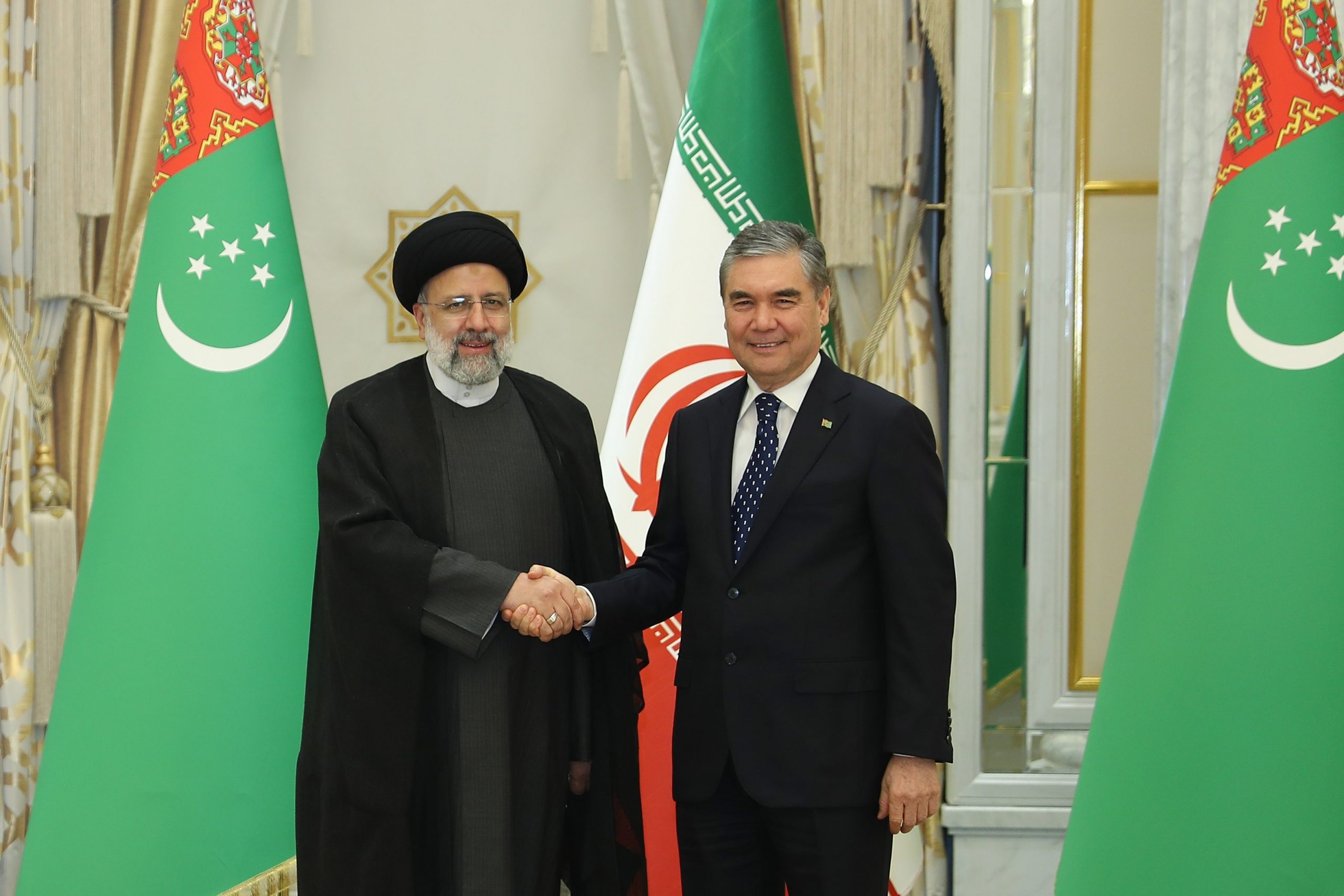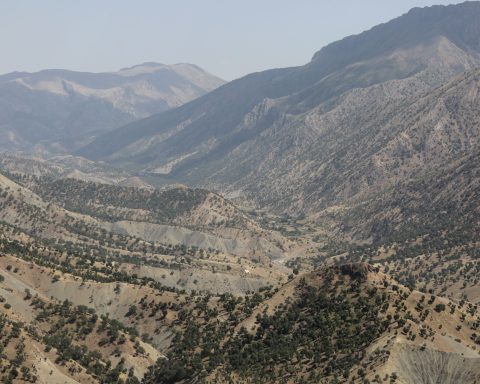In addition to having vast oil and gas resources, Iran has always had a special geographical position for the transfer of oil and gas from the Caspian Sea and Central Asia to consuming countries, although numerous sanctions have prevented Iran from engaging in oil transfer projects in recent years.
In 1996, an agreement was signed between Iran and Kazakhstan, according to which 40,000 barrels of light crude oil were delivered daily from Kazakhstan to the Tabriz and Tehran refineries. In return, the same amount of Iranian light crude oil in the Persian Gulf was delivered to Kazakhstan’s trading partners. In late November, following the end of a bilateral meeting between Sayed Ibrahim Raisi and Ilham Aliyev on the sidelines of the ECO Summit, a tripartite agreement was signed by the two countries’ oil ministers, according to which 1.5 to 2 billion cubic meters of gas will be transported annually from Turkmenistan to Azerbaijan through the Islamic Republic. According to the agreement, Iran must receive gas for export from this country on the border with Turkmenistan, and with it, it will supply part of the gas to the five provinces of Khorasan Razavi, North Khorasan, South Khorasan, Gilan, and Semnan.
The Iran-Turkmenistan gas dispute
It was in the winter of 1995 that the gas dispute between Turkmenistan and Iran escalated, and despite the visit of Hamid Reza Iraqi, the former CEO of the National Gas Company at the time, to Turkmenistan to continue importing gas from the country, Turkmenistan cut off gas supplies due to increased Iranian debt. The agreement was signed between Iran and Turkmenistan in 1997. The country must export between 8 and 10 billion cubic meters of gas a year to Iran, Due to the difficulty of transferring gas export money from Turkey to Turkmenistan, the Ahmadinejad administration signed an agreement with Turkmenistan, according to which, instead of gas money, Iran exported technical services, goods, petrochemical products, road construction and transportation equipment to Turkmenistan.
Turkmenistan has suspended gas supplies to the Islamic Republic since the beginning of 2017, following a dispute with Iran over its export gas debt. In fact, Iran’s disregard toward Turkmenistan’s request, for several years, to gradually increase gas prices is the cause of this situation. While the price of oil rose from $20 in 1997 to $72 in 2007, it reached above $110 by the end of Mahmoud Ahmadinejad’s administration, as expected. Thus, Tehran refused to negotiate with Ashgabat to review gas prices and finally increased the price of gas many times over in 2007.
The costs for transporting or exchanging gas are very high. Georgia, for example, has paid only 5 percent for the transfer of gas from the Republic of Azerbaijan to Turkey, but Iran demands three times that amount from Azerbaijan, because Baku has no other way to transfer gas to Nakhchivan. From Igdir, Turkey will be drawn to Nakhchivan, and half a billion cubic meters of Azerbaijani gas will reach Nakhchivan annually, passing through Georgia and Turkey, which is much higher than the volume of gas sent to Nakhchivan from Iran.
Due to the fact that Iran’s energy industry is facing many problems, and in recent weeks the delivery of fuel oil to thermal power plants due to gas cuts has increased pollution in some cities, the Ministry of Oil has taken action to cut off the gas supply to some power plants and factories to compensate for natural gas shortages, including cement factories. However, all this has not been able to compensate for the shortage of gas in the national grid. Trying to import gas from Turkmenistan or doing gas swaps is also one of the methods used by the Ministry of Oil to compensate for the shortage of natural gas. Although, the point is that, contrary to the claims of the Iranian ambassador to Azerbaijan, the new gas swap agreement cannot fully meet the needs of the five northern provinces. According to estimates, Iran’s transit fee in a similar swap contract in 2016 was about 20 percent of the value of natural gas. This means that even if the criterion for determining Iran’s profit from the transit right is natural gas, in the end, Iran’s annual profit from this contract will be 300 to 400 million cubic meters of gas. This amount is equivalent to consuming half a day of natural gas in Iran. It should be borne in mind that the annual consumption of natural gas in Iran is 240 billion cubic meters, and as a result, Iran’s profit from this contract cannot meet the consumption of natural gas in the five provinces. Under the 2016 swap agreement, Iran’s profit from the swap operation was 20 percent, and Azerbaijan earned about 35 percent of additional revenue by selling this volume of gas to Georgia.
Turkey is one of the main customers of Iranian natural gas. Although Iran has not been a reliable supplier for Turkey, the cessation of gas exports to Turkey in the first five months of this year caused a loss of $2 billion. In looking at gaining a share of the regional gas market and gas exports, in addition to the mere benefits of the energy economy, the dimensions of energy security must also be considered strategically. An issue is that, the expansion of “inter-state energy interdependence” can eliminate “the underlying components of the establishment and continuation of foreign sanctions on Iran” forever.
As a holder of 16 percent of the world’s gas reserves, Iran falls behind such natural gas-producing countries like the US and Russia in production. The Iran administration attributes this condition to factors such as sanctions, insufficient financial resources, and the incapability of making essential investments. Moreover, in the report prepared by the Iran Energy Supreme Council, a warning was issued that if the essential investments were not made and if wastefulness was not prevented, the natural gas production-consumption balance could be reduced to minus as of 2025 and that the production of natural gas would not meet consumption.
This agreement will not be able to compensate for the gas shortage in the northern provinces. But in terms of geopolitics and energy economics, it is a good opportunity for Iran to play a small role in the equations of energy regions. If Iranian authorities have a serious desire to reach a nuclear deal, the short-term problems of Iran’s energy industry can be solved by using the capabilities of some neighboring Soviet gas. The recent agreement can be assessed in line with the policy of increasing relations with neighboring countries. Instead of supporting a tense foreign policy and supporting proxy groups, the head of state can use energy tools as the axis of relations with neighboring countries.
If the problem of pressure drop in the South Pars field, where most of Iran’s natural gas is supplied, is not resolved and high domestic consumption is not managed, Iran will face a serious crisis in the energy sector, augmented due to the inability to implement the contracts. Consequently, natural gas will lose its regional market. Turkey showed last year that without importing natural gas from Iran, its energy security would not be seriously challenged. Iran must meet Turkey’s conditions to maintain its share of the Turkish gas market, which should be included in a new contract. More importantly, energy diplomacy in Iran needs a market and the position of energy exports in the foreign policy of the country should be redefined. The recent agreement on the transit of Turkmen natural gas through Iran to Azerbaijan can be considered a successful form of energy diplomacy during the Raisi presidency. However, this is not a swap agreement because Iran will only deliver gas delivered from Turkmenistan to Azerbaijan and will receive its transit rights. The transit fee received by Iran from this pipeline can only provide consumption for one day in the five northern provinces of Iran. Moreover, the claims of the Iranian authorities regarding the transit fee conflict with the realities of the energy market. Iran will lose access to Turkey’s natural gas market if it does not agree with the United States on a nuclear and missile program.














